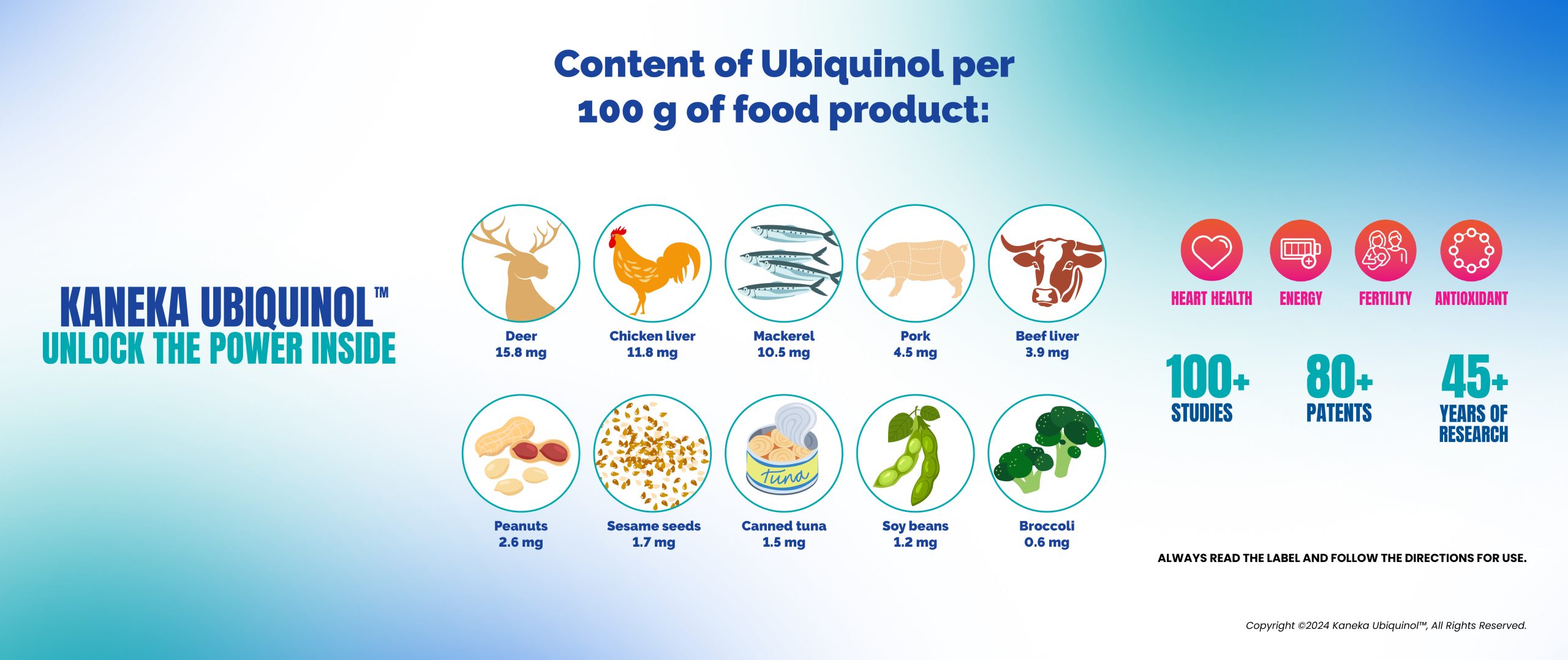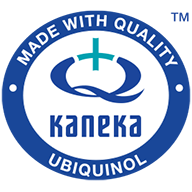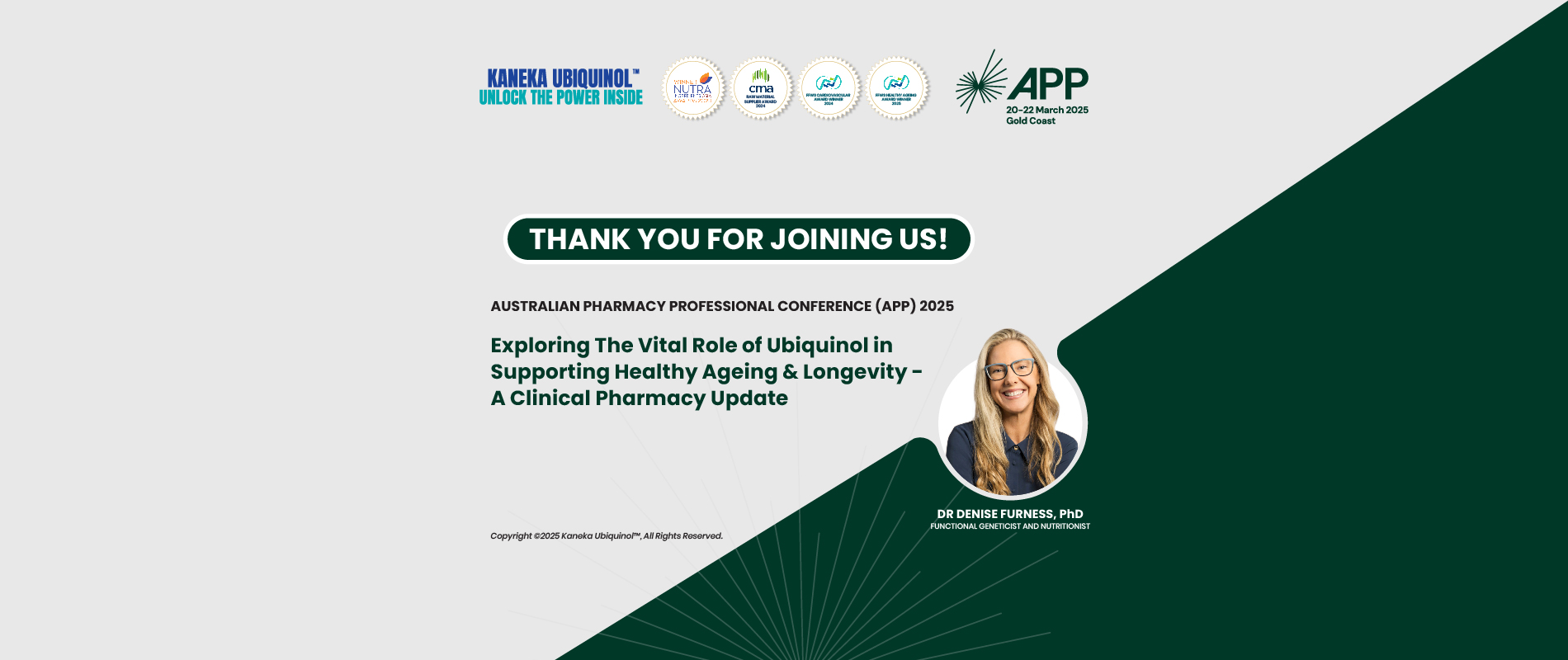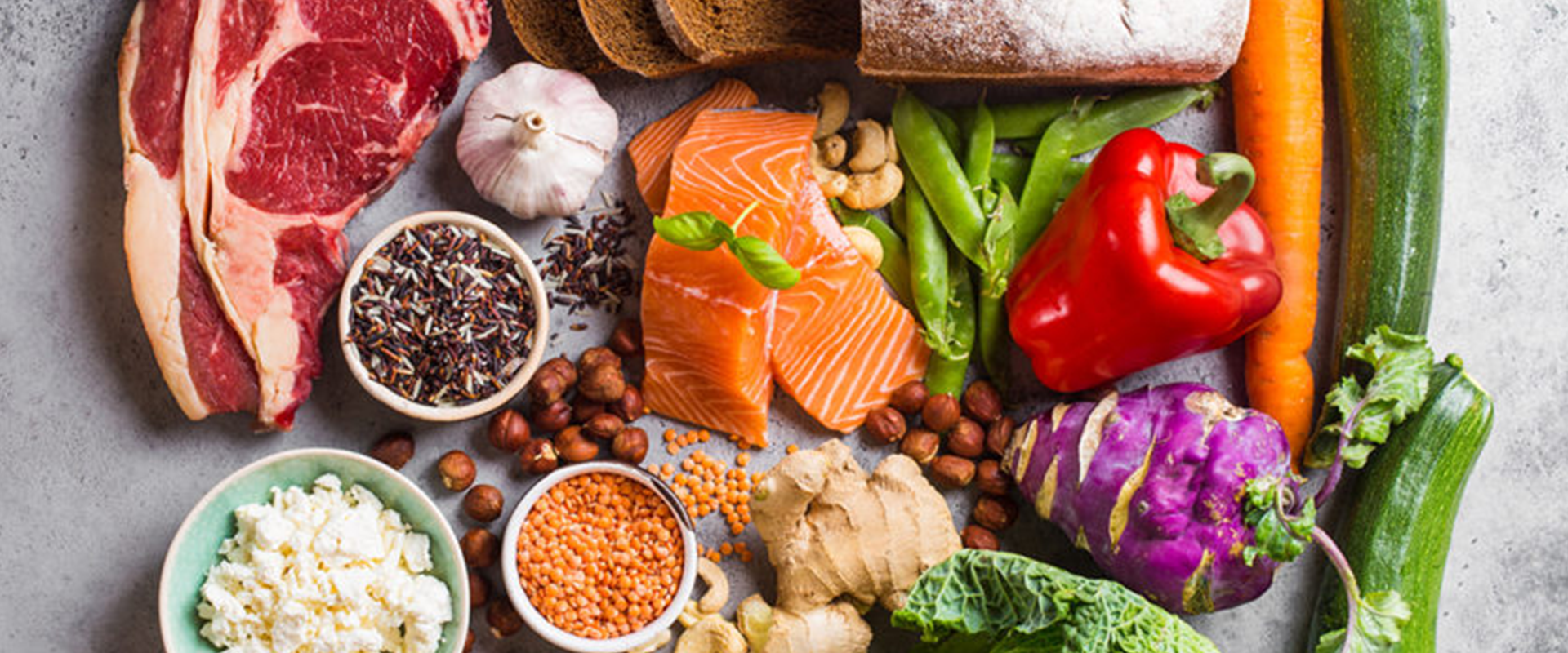
Ubiquinol: Our Natural DNA Repair System
Apr 2021Recent Article
Oxidative Damage To DNA
DNA is constantly exposed to natural reactive oxygen species (ROS) which may produce oxidative modifications[1]. It is also possible that other chemicals and physical agents also attack the DNA molecule, potentially leading to further oxidative disruption[2].
Cellular Regeneration and Antioxidants
To counteract ROS, our cells also posses DNA repair systems[3]. However, if these repair systems are not sufficient, the ROS may have a long-term impact on our DNA[4]. Antioxidants may counteract ROS, however if exposure to oxidative stress is too excessive, or antioxidant defenses are insufficient, the result may be increased levels of unrepaired DNA[5].
Ubiquinol Defends Against Oxidative Stress
Ubiquinol, as the active form of CoQ10, is a fat-soluble antioxidant found naturally in the body. Ubiquinol has several health benefits, including supporting cardiovascular health[6], assisting cellular energy production[7], supporting sperm motility and morphology[8] and supporting healthy levels of cholesterol in healthy adults[9][10].
Ubiquinol may also help reduce the impact of long-term oxidative stress on the body[11]. As Ubiquinol is an antioxidant, this means that it may be able to help neutralise the free radicals that cause oxidative stress[12].
Why Does Ubiquinol Decline As We Age?
After age 30, our body’s natural levels begin to slowly decline[13]. Ubiquinol is found naturally in foods, such as steak, peanuts, sardines, spinach, avocado, chicken and olive oil. However, trying to replenish the body’s natural levels of Ubiquinol through food alone could lead to consuming excessive amounts of these foods. For example, to reach 100mg of Ubiquinol from food sources alone you would need to eat per day 10kg of broccoli, 20 steaks, 1.5kg of peanuts, 120 cans of sardines, 50 cups of spinach, 60 avocados, 100 table spoons of canola oil, 34 chicken breasts or 133 table spoons of olive oil. If you wish to replenish your body’s natural levels of Ubiquinol, you may wish to consult your healthcare practitioner about supplementing with Ubiquinol.
Before taking a ubiquinol supplement seek medical advice from a doctor or consult your healthcare practitioner to find out whether a supplement is right for you. Always read the label.
[1] Geacintov, NE & Broyde, S. (2010). The chemical biology of DNA damage, Wiley-VCH, Weinheim.
[2] Geacintov, NE & Broyde, S. (2010). The chemical biology of DNA damage, Wiley-VCH, Weinheim.
[3] Geacintov, NE & Broyde, S. (2010). The chemical biology of DNA damage, Wiley-VCH, Weinheim.
[4] Geacintov, NE & Broyde, S. (2010). The chemical biology of DNA damage, Wiley-VCH, Weinheim.
[5] Geacintov, NE & Broyde, S. (2010). The chemical biology of DNA damage, Wiley-VCH, Weinheim.
[6] Kloer, H-U, Berlardinelli, R, Ruchong, O & Rosenfeldt F. (2020). Heart, Lung and Circulation, 29, 188–195 1443-9506/04. <https://www.heartlungcirc.org/article/S1443-9506(19)31444-1/fulltext>
[7] Alf D, Schmidt ME & Siebrecht SC. (2013). Journal of the International Society of Sports Nutrition, 10:24. <https://www.ncbi.nlm.nih.gov/pubmed/23627788>
[8] Safarinejad MR, Safarinejad S, Shafiei N & Safarinejad S. (2012). The Journal of Urology, 188(2):526-31. <www.ncbi.nlm.nih.gov/pubmed/22704112>
[9] Zlatohlavek L, Vrablik M, Grauova B, Motykova E & Ceska R. (2012). Neuro Endocrinology Letters, 33 Suppl 2:98-101. <www.ncbi.nlm.nih.gov/pubmed/23183519>
[10] Schmelzer C, Niklowitz P, Okun JG, Haas D, Menke T & Döring F. (2011). IUBMB Life, 63(1):42-8. <www.ncbi.nlm.nih.gov/pubmed/21280176>
[11]Sarmiento A, Diaz-Castro J, Pulido-Moran M, Moreno-Fernandez J, Kajarabille N, Chirosa I, Guisado IM, Javier Chirosa L, Guisado R & Ochoa J. (2016). Biofactors, 42(6):612-622.
[12] Sarmiento A, Diaz-Castro J, Pulido-Moran M, Moreno-Fernandez J, Kajarabille N, Chirosa I, Guisado IM, Javier Chirosa L, Guisado R & Ochoa J. (2016). Biofactors, 42(6):612-622.
[13] Barcelos, I., & Haas, R. (2019). CoQ10 and Aging. Biology, 8(2), 28. <10.3390/biology8020028>
You can share this by:
Keep up-to-date with Ubiquinol News
Ubiquinol Headlines
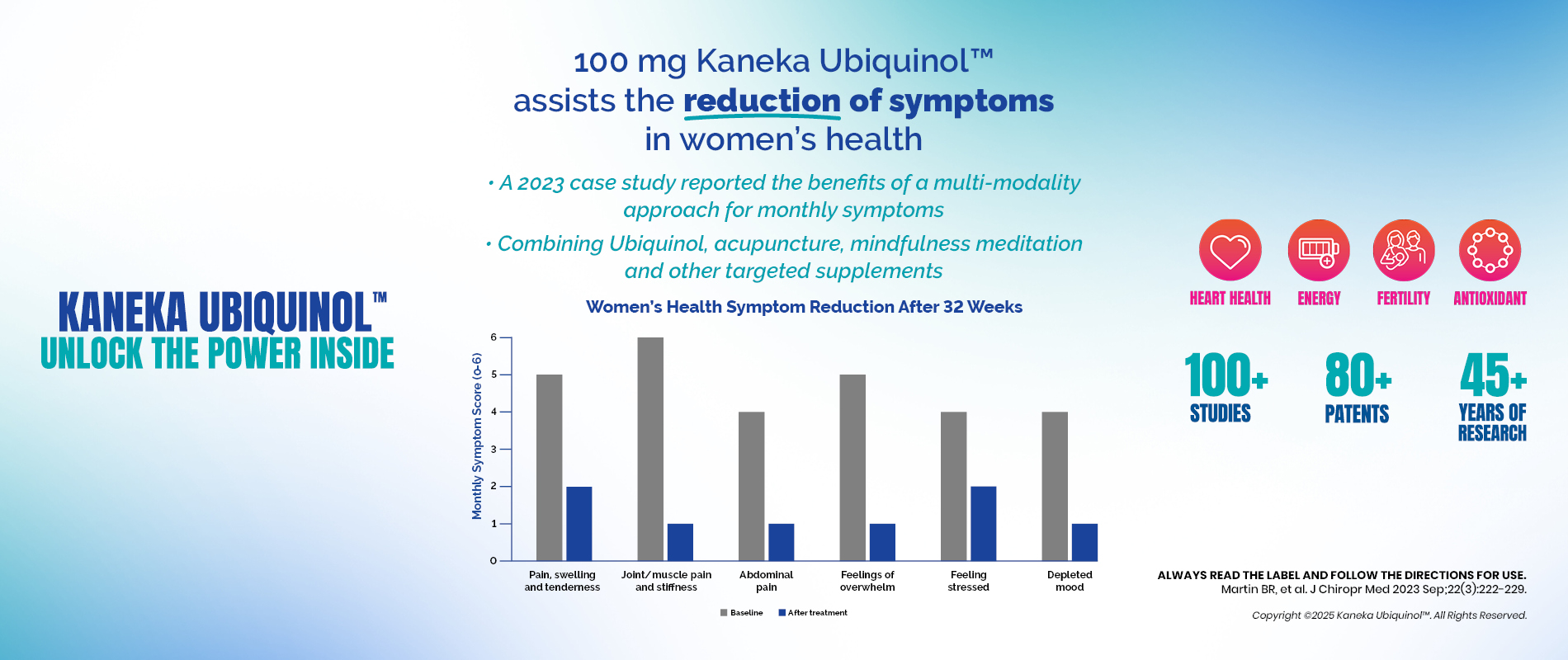
Ubiquinol for Women’s Health
Apr 2025Category: Ageing, Antioxidants, Fertility, Kaneka, Mitochondrial health, Ubiquinol, wellness, Women's HealthRead More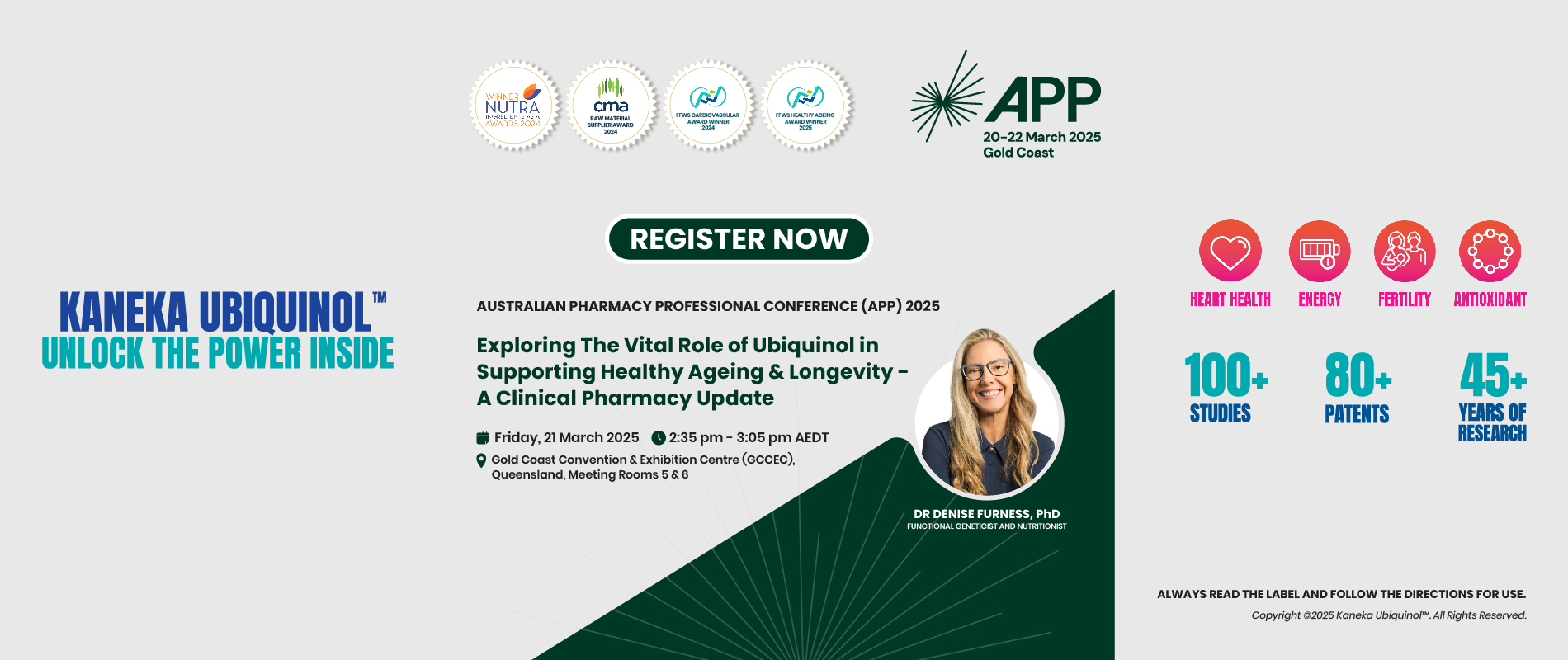
Kaneka Ubiquinol™ at APP 2025: Advancing Healthy Ageing & Longevity
Mar 2025Category: Ageing, Antioxidants, APP, Conference, Conferences, Energy, Fatigue, Health, Health Industry, healthy ageing, Kaneka, Mitochondrial health, Nutrition, UbiquinolRead More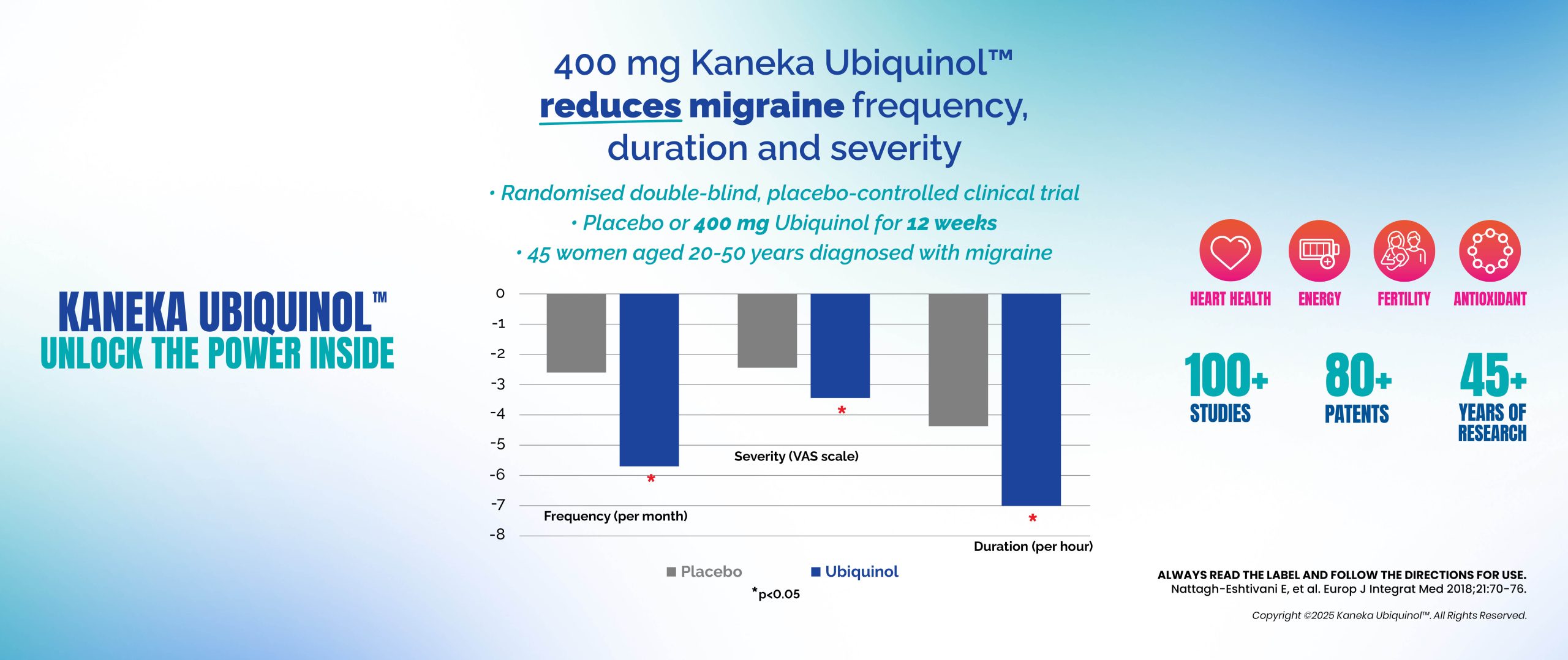
Ubiquinol: Supporting Migraine Relief Through Cellular Energy
Jan 2025Category: Antioxidants, complementary medicine, Energy, Fatigue, Health, Health Industry, healthy ageing, Kaneka, Mitochondrial health, Nutrition, Stress, Ubiquinol, Vitamins, wellnessRead More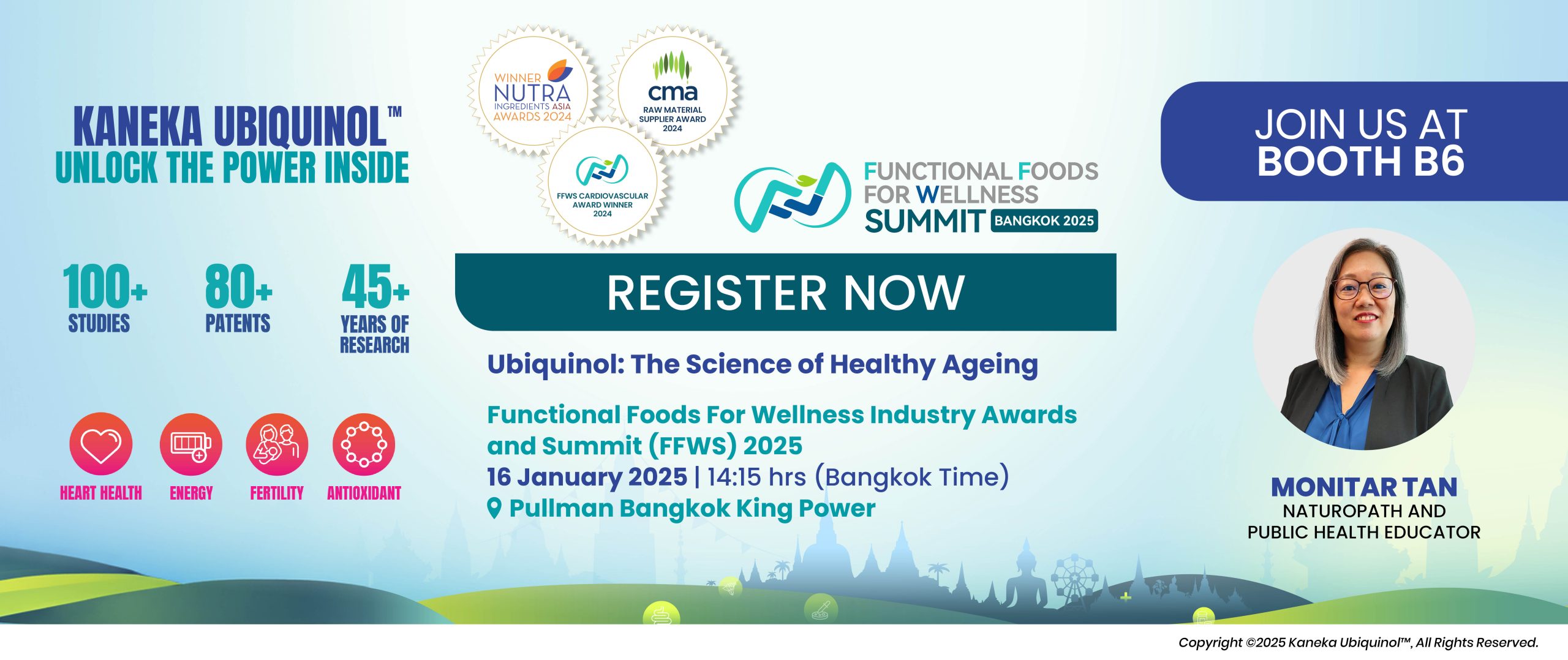
Kaneka Ubiquinol™ at Functional Foods for Wellness Industry Awards and Summit, #FFWS2025
Jan 2025Category: Ageing, Antioxidants, Awards, cardiovascular health, Conference, Conferences, Energy, Fatigue, FFWS2025, Health, Health Industry, healthy ageing, Kaneka, Menopause, Mitochondrial health, Nutrition, Ubiquinol, VitaminsRead More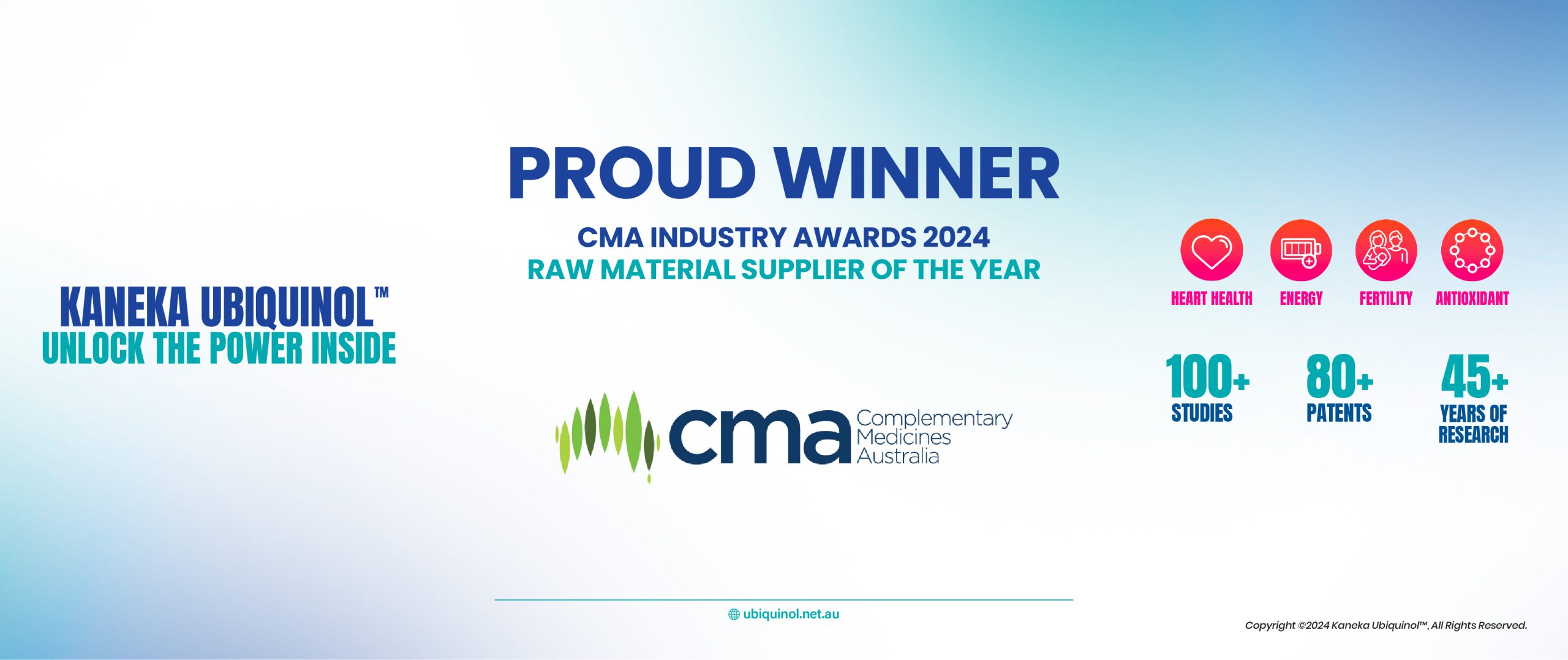
Kaneka Ubiquinol Wins Prestigious Complementary Medicines Raw Material Supplier of the Year Award 2024
Dec 2024Category: Ageing, Awards, cardiovascular health, complementary medicine, Conference, Conferences, Endurance, Energy, Fatigue, Fertility, Fitness, Health, Health Industry, healthy ageing, Heart, Immunity, In The News, Kaneka, Lungs, Memory, Mitochondrial health, Nutrition, Online, Stress, Ubiquinol, Vitamins, wellnessRead More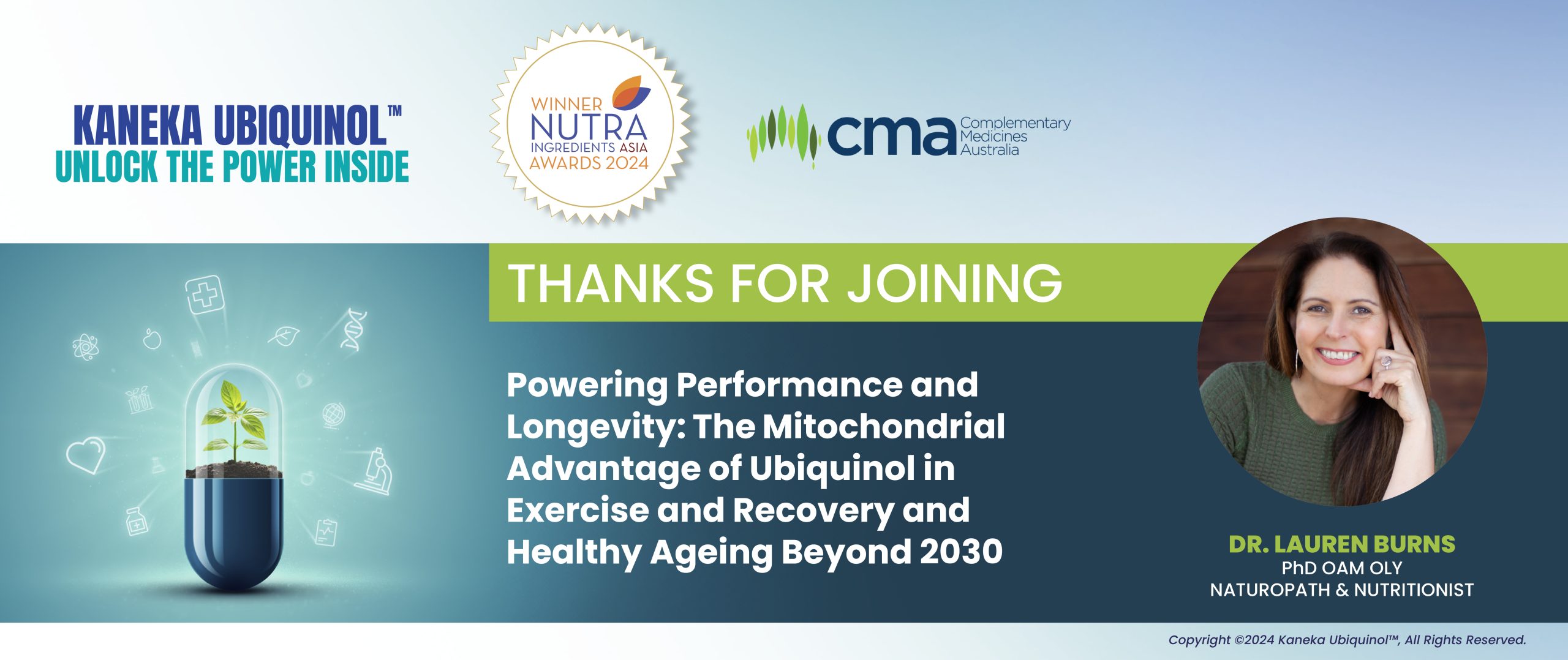
“Powering Performance and Longevity: Kaneka Ubiquinol™ at the CMA Annual Conference 2024”
Nov 2024Category: Ageing, Antioxidants, Awards, cardiovascular health, chronic fatigue syndrome, complementary medicine, Conference, Conferences, Endurance, Energy, Fatigue, Fertility, Fitness, Health, Health Industry, healthy ageing, Heart, In The News, Kaneka, Mitochondrial health, Online, Ubiquinol, VitaminsRead More
Natural Health Product Innovation Expo 2024
Nov 2024Category: Ageing, Antioxidants, cardiovascular health, Cholesterol, chronic fatigue syndrome, Conference, Conferences, Endurance, Energy, Fatigue, Fertility, Fitness, Health, Health Industry, healthy ageing, Heart, Kaneka, Menopause, Mitochondrial health, NHNZ, Nutrition, Stress, Ubiquinol, Vitamins, wellnessRead More